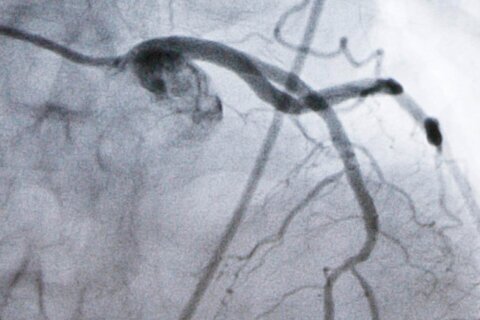The following information is provided by Graphiq and HealthGrove:
by Sabrina Perry

In the United States, a small list of diseases takes the lives of a large majority of people. Every year, the Centers for Disease Control and Prevention tallies up all deaths and related conditions to find the leading causes of death in the country. Heart disease, cancer and respiratory diseases are a few that regularly top the list.
But what about at the state level? Not all health conditions kill the same percentage of people across all states, which means some diseases kill more than others — and more than their national average — in each state. By lumping all the data into national averages, we can miss important patterns, which is potentially dangerous. Only by zooming in and analyzing these state-by-state differences can we find deadly, regional trends.
Take, for example, death by accidental poisoning. On a national level, this caused 14.4 deaths per 100,000 in 2014. In Ohio, however, it killed 23.7 per 100,000. So, in Ohio, death by accidental poisoning is over-indexed. This means it is significantly more common in this state than in the nation as a whole. For our purposes, this makes death by accidental poisoning surprisingly common in Ohio.
So what diseases kill the most, and where?
Using 2014 data from the CDC, HealthGrove looked at all 113 causes of death and found the causes that were most over-indexed in all 50 states — that is, where they have the highest death rates compared to the national average. Only conditions that caused 100 deaths or more on average per state were considered.
For each of these surprisingly common causes of death, the states in which it is the most over-indexed are listed. Each state is only listed once.
Upon examining this data, certain trends emerge. As of 2014, assault is the most over-indexed cause of death in the South. On the West Coast, hepatitis prevails and in mountain region states, self-harm is the most over-indexed.
While there may be underlying causes contributing to these increased regional prevalences, such as the connection between thin air and depression that might explain the trend of self-harm in the mountain states, the current data is too limited to allow for causal inferences. However, noting these outliers can assist those wondering how and where to allocate specific types of aid.
#1. Accidental poisoning and exposure to noxious substances
Over-Indexed In: Ohio
#2. Heart Attack
Also known as acute myocardial infarction, this happens when blood flow to the heart is blocked. Over-Indexed In: Arkansas, Kentucky
#3. Alcoholic Liver Disease
Heavy alcohol use can damage the liver and cause this disease.
Over-Indexed In: Arizona, New Mexico, South Dakota
#4. All other forms of chronic ischemic heart disease
Chronic ischemic heart disease is different than myocardial infarctions (heart attacks) because it refers to chronic issues that affect the heart’s major blood vessels. Over-Indexed In: New York
#5. Alzheimer’s disease
Over-Indexed In: Washington
#6. Anemias
Anemia is when the blood does not have enough red blood cells, which leads to reduced oxygen flow in the body. Over-Indexed In: Indiana
#7. Assault
Over-Indexed In: Alabama, Delaware, Georgia, Illinois, Louisiana, Maryland, Michigan, Mississippi, Missouri, North Carolina, Pennsylvania, South Carolina, Tennessee
#8. Atherosclerosis
This condition occurs with the build-up of fats, cholesterol and other substances (plaque) in the artery walls. This can lead to ruptures and blocking of the arteries by clots. Over-Indexed In: Colorado, Indiana, Kansas, North Dakota
#9. Atherosclerotic Cardiovascular Disease
With enough atherosclerosis, other conditions may arise. The build up and rupturing of arterial plaque can cause various conditions.
Over-Indexed In: Nevada, Oklahoma, Rhode Island
#10. Emphysema
Emphysema refers to a group of lung diseases that impede breathing. Over-Indexed In: Vermont
#11. Clostridium Difficile Colitis
The bacterium, Clostridium difficile, can inflame the colon when the normal gut bacteria gets disrupted. This often occurs from antibiotics. The inflammation of the colon is referred to as enterocolitis.
Over-Indexed In: Connecticut, Virginia
#12. Falls
Over-Indexed In: Wisconsin
#13. Human Immunodeficiency Virus
Over-Indexed In: District of Columbia, Florida
#14. Intentional Self-Harm
Over-Indexed In: Alaska, Idaho, Maine, Montana, New Hampshire, Utah, Wyoming
#15. Stomach Cancer
This is also known as malignant neoplasm of the stomach. Malignant neoplasm, the condition in which cells divide abnormally and uncontrollably, refers to cancer.
Over-Indexed In: Hawaii
#16. Other chronic liver disease and cirrhosis
Cirrhosis involves irreversible damage and scarring to the liver. A few symptoms of cirrhosis include weakness, loss of appetite and easy bruising. Hepatitis and alcohol abuse are common causes of most liver diseases. Over-Indexed In: Texas
#17. Septicemia
When infections get severe enough, bacteria can get into the blood stream, leading to septicemia.
Over-Indexed In: New Jersey
#18. Symptoms, signs and abnormal clinical and laboratory findings, not elsewhere classified
Over-Indexed In: Massachusetts, Minnesota, Nebraska, West Virginia
#19. Viral Hepatitis
This liver infection is caused by the hepatitis A virus and can be prevented by vaccine.
Over-Indexed In: California, Oregon
Research These Conditions on HealthGrove







